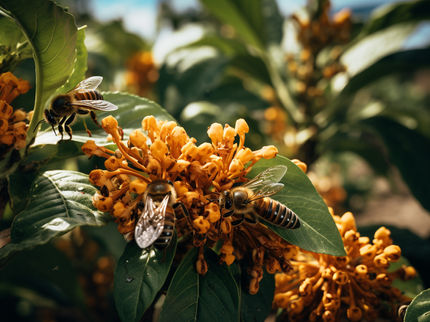PDO cheeses and milks harbor startling microbial diversity
Protected Designation of Origin (PDO) is an EU labelling scheme that guarantees the authentic regional identity of consumer food products. In France, 51 dairy products, including cheeses, butters, and creams, carry the PDO seal, a sign of artisanship and adherence to specifications related to production zones, production processes, and livestock diets, among other factors.
Cheese flavour, texture, and rind formation are all influenced by the bacteria, yeasts, and moulds introduced by milk sources and the fermentation process. These microbes can then go on to enrich the intestinal microbiota of cheese consumers.
For the first time ever, the microbial diversity of French PDO cheeses and their milk sources were studied by a team of researchers from INRAE, CEA, the French National Council for Dairy Products of Designated Origins (CNAOL), and the French National Interprofessional Centre for the Dairy Industry (CNIEL). As part of the MetaPDOcheese project (see sidebar below), the researchers worked with committed PDO stakeholders to collect samples from 386 farmers and cheese producers across France; they simultaneously gathered detailed information about cheese production methods.
They analysed 44 varieties of ripened cheese, all PDO. These cheeses were representative of seven cheese families (e.g., blue cheeses, pressed cooked cheeses) that are consumed worldwide. In the end, researchers from Genoscope[1] (CEA) sequenced the microbes in over 2,000 samples of French PDO cheeses and nearly 400 milk sources.
The results revealed the existence of extremely rich microbial assemblages: 820 bacterial species and 333 mould/yeast species in the cheeses, and 1,230 bacterial species and 1,367 mould/yeast species in the milk sources. A large proportion of the microbes in the cheeses likely come from the milk sources: there was overlap for approximately 42% of the bacterial species and 64% of the mould/yeast species.
After integrating the information on cheese production practices, the researchers found that species assemblages were influenced by variables such as geography, regional topography, and anthropogenic drivers—factors for which PDO is an aggregated proxy. From these findings, it is clear that regional artisanship helps cultivate the microbiota of cheeses.
This study has yielded valuable insights into the link between microbial diversity and the practices used to produce PDO cheeses, including how these dynamics may be affected by climate change.
[1]A division of the CEA's François Jacob Institute of Biology. Specialising in environmental genomics, Genoscope develops bioinformatics methods and conducts biodiversity-focused research in genomics and metagenomics. It is also a national sequencing centre and thus makes its services available to the entire scientific community via France Génomique.
Original publication
Françoise Irlinger, Mahendra Mariadassou, Eric Dugat-Bony, Olivier Rué, Cécile Neuvéglise, Pierre Renault, Etienne Rifa, Sébastien Theil, Valentin Loux, Corinne Cruaud, Frederick Gavory, Valérie Barbe, Ronan Lasbleiz, Frédéric Gaucheron, Céline Spelle, Céline Delbès; "A comprehensive, large-scale analysis of “terroir” cheese and milk microbiota reveals profiles strongly shaped by both geographical and human factors"; ISME Communications, Volume 4, 2024-7-11
Most read news
Original publication
Françoise Irlinger, Mahendra Mariadassou, Eric Dugat-Bony, Olivier Rué, Cécile Neuvéglise, Pierre Renault, Etienne Rifa, Sébastien Theil, Valentin Loux, Corinne Cruaud, Frederick Gavory, Valérie Barbe, Ronan Lasbleiz, Frédéric Gaucheron, Céline Spelle, Céline Delbès; "A comprehensive, large-scale analysis of “terroir” cheese and milk microbiota reveals profiles strongly shaped by both geographical and human factors"; ISME Communications, Volume 4, 2024-7-11
Topics
Organizations
Other news from the department science

Get the food & beverage industry in your inbox
By submitting this form you agree that LUMITOS AG will send you the newsletter(s) selected above by email. Your data will not be passed on to third parties. Your data will be stored and processed in accordance with our data protection regulations. LUMITOS may contact you by email for the purpose of advertising or market and opinion surveys. You can revoke your consent at any time without giving reasons to LUMITOS AG, Ernst-Augustin-Str. 2, 12489 Berlin, Germany or by e-mail at revoke@lumitos.com with effect for the future. In addition, each email contains a link to unsubscribe from the corresponding newsletter.





























































